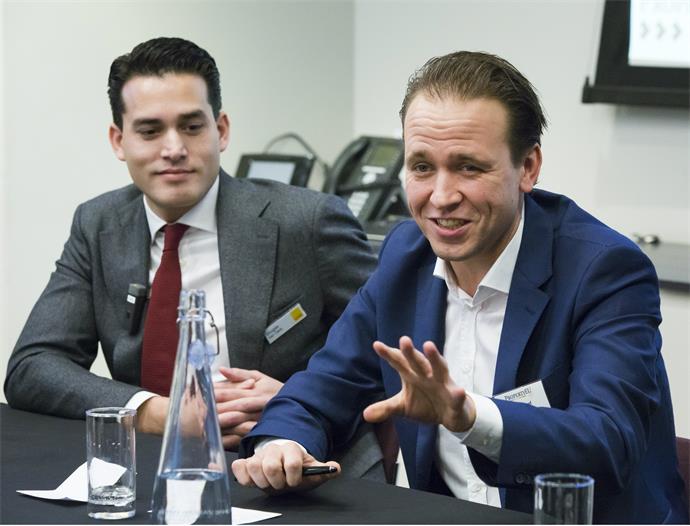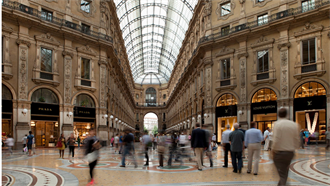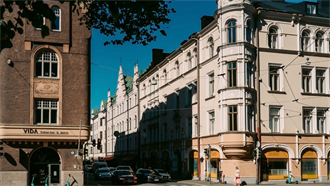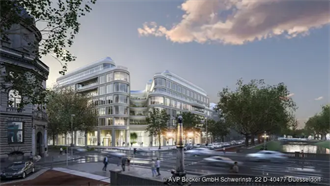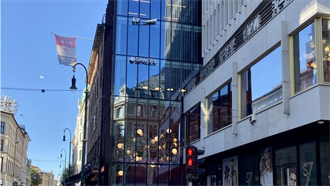The European logistics market is undergoing a transformation from 'ugly duckling' to 'beautiful swan’ and attracting unprecedented interest from domestic and overseas investors, experts agreed at PropertyEU's Logistics Investment Briefing, which was held in London on Friday.
‘Logistics makes modern life possible,’ said Dirk Sosef (pictured, right), vice-president of research & strategy at Prologis. ‘Supply chain reconfiguration is driving the demand for logistics in Europe, there is more capital available and the asset class is becoming more institutionalised. In investors’ eyes it is turning from ugly duckling to beautiful swan.’
Despite the late-stage cycle, a mixed economic outlook and plenty of political risk with elections coming up in France, Germany, the Netherlands and possibly Italy, the logistics sector is thriving because of changing retail patterns and the rise of e-commerce.
Logistics has proved its credentials as a safe haven because so far ‘it has been the least affected by geopolitical shocks,’ said Douglas van Oers (pictured, left), associate director of logistics & industrial at Savills. ‘For this reason I believe that demand will grow this year, whatever happens on the political front.’
Looking at fundamentals, the supply/demand imbalance works in favour of logistics. ‘The key thing is that Europe remains an undersupplied market,’ said Sosef. ‘Europe and the US have GDPs of similar size, yet the logistics stock level in Europe is 2.5 m2 per person, while in the US it is 7.5 m2, three times as much. Yet there is no oversupply in the US and very low vacancy rates.’
Despite an increase in stock levels in many European countries, it will take a long time to close the gap between demand and supply. The US leads the way and the UK and then the rest of Europe usually follow, said Sosef, so it is worth looking at what is happening in the US logistics market. ‘The two most interesting trends, which could soon come here, are the closing down of mega-hubs in favour of locations closer to the cities and the use of office buildings in city centres for warehouse space for last-mile delivery.’
Campus-style distribution hubs
The increase in online sales and the need for faster delivery times are driving demand for last-mile delivery centres in urban locations across Europe. This presents great opportunities for investors, said Christian Jamison, managing partner at Valor Real Estate Partners: ‘We focus on last-mile delivery and since our launch last summer we have found much to buy in urban infill locations in the €5-€30 mln lot size, because not many players are willing to take on the value-add risk.’ As the urbanisation trend is unstoppable, this type of product also has the advantage of being ‘insulated from any potential economic downturn,’ he said.
At the other end of the spectrum, another trend that is taking hold in Europe is for campus-style centres with shared facilities which can act as pan-European distribution hubs. One notable example is Fokker Logistics Park near Amsterdam’s Schiphol airport, which is doubling in size.
‘Part of the reason for its success is that security is extremely good, so highly valuable goods can be stored, and this is very appealing for investors,’ said Sosef. ‘In general, campuses are a niche market now but growing fast. Size allows for flexibility and we see longer leases there.’
Campuses in core markets and good locations are a good investment that allows for longer leases, agreed Christian Bischoff, CEO of Log4Real: ‘You are looking at 10-year-plus leases,’ he said. ‘In one case, at a campus near Frankfurt airport, we have just signed a 15-year lease with an Airbus supplier.’

